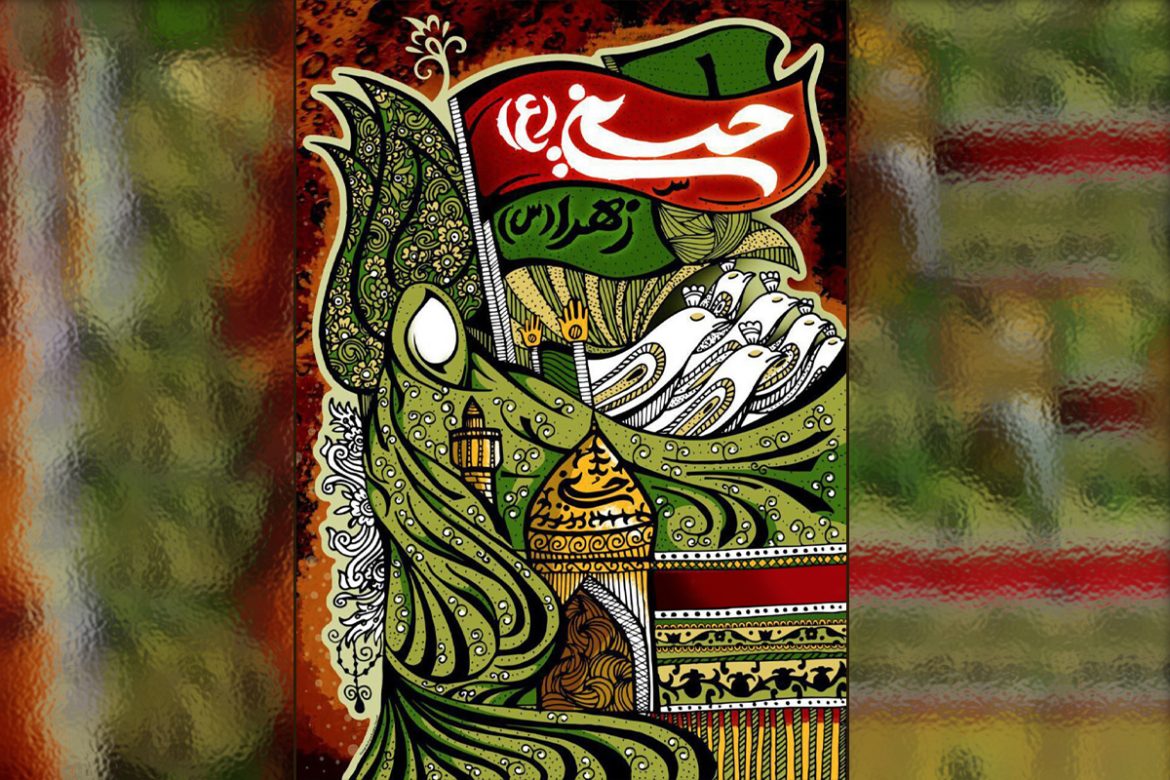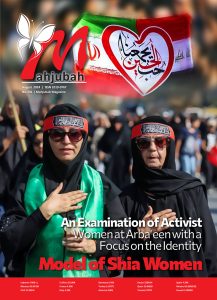Abstract
This article provides a feminist analysis of Lady Zainab’s activism during and after Ashura, comparing her roles to those of prominent modern feminist figures. It explores how Lady Zainab’s leadership, resilience, and empowerment align with the principles advocated by bell hooks (Gloria Jean Watkins), Angela Davis, Rosa Parks, and Judith Butler. Lady Zainab’s impactful speeches and defiance during a period of immense personal and collective suffering are analyzed in the context of contemporary feminist thought, emphasizing her contributions to the empowerment of marginalized communities. Through a comparative approach, this article highlights the enduring relevance of her activism and its resonance with modern feminist ideals. The discussion centers on Lady Zainab’s public speaking as a form of resistance, her resilience in the face of oppression, and her role in empowering others, drawing parallels with the activism of modern feminist icons. This analysis underscores the importance of recognizing and celebrating historical figures whose actions align with feminist principles, demonstrating the continuity of feminist struggles across different contexts and epochs.
Keywords: Feminism, Lady Zainab, Public Speaking, Resilience, Empowerment
INTRODUCTION
Lady Zainab bint Ali, the sister of Imam Hussain, stands as a formidable figure in Islamic history due to her exceptional role during and after the Battle of Karbala. Her activism, particularly her courageous speeches and leadership, has garnered significant attention. This article aims to analyze Lady Zainab’s activism through a feminist lens, comparing her role with those of modern feminist figures such as bell hooks, Angela Davis, Rosa Parks, and Judith Butler. The comparison will highlight how her actions embody feminist principles of leadership, resilience, and empowerment, and will reflect on the continuity of feminist activism across historical and contemporary contexts.
Leadership and Public Speaking
Lady Zainab’s leadership and public speaking during the aftermath of Ashura are critical components of her activism. Her eloquent speeches, particularly those delivered in the courts of Yazid and Ibn Ziyad, were instrumental in condemning the injustices perpetrated by the Umayyad regime. In her famous address, she not only criticized the tyranny of Yazid but also provided a powerful articulation of her faith and the principles of justice and righteousness.
The significance of her public speaking can be analyzed in relation to bell hooks’ concept of the power of voice. hooks argues that the act of speaking out is a form of resistance against systemic oppression and is crucial for feminist activism (hooks, 2000). Lady Zainab’s speeches align with this view, as they served to challenge and expose the injustices of her time while empowering others to stand against oppression.
Similarly, Rosa Parks’ role in the civil rights movement exemplifies the impact of using one’s voice to confront systemic injustices. Parks’ refusal to give up her seat on a segregated bus was not only an act of defiance but also a statement against racial inequality (Parks, 1992). Like Parks, Lady Zainab’s public statements were pivotal in advocating for justice and challenging entrenched systems of oppression.

Resilience and Defiance
Lady Zainab’s resilience and defiance in the face of overwhelming adversity are central to understanding her role as an activist. Following the Battle of Karbala, she demonstrated remarkable strength by caring for the survivors and continuing to advocate for the message of Karbala despite personal losses and suffering (Al- Muqaddam, 2018). Her ability to remain steadfast and continue her advocacy under such dire circumstances reflects a profound level of resilience. Angela Davis’ activism provides a modern parallel to Lady Zainab’s resilience. Davis’s efforts to address racial and gender inequalities, despite facing imprisonment and persecution, highlight her unwavering commitment to social justice (Davis, 1981). Both Davis and Lady Zainab exemplify how personal strength and resilience can drive broader social change.
Judith Butler’s concept of performative resistance is also relevant here. Butler suggests that acts of resistance are not merely reactions to oppression but performative acts that challenge and disrupt normative structures (Butler, 1990). Lady Zainab’s defiance in the aftermath of Karbala can be seen as a performative act of resistance that challenged the oppressive norms of her time and asserted a new narrative of justice and resilience.
 Agency and Empowerment
Agency and Empowerment
Lady Zainab’s role in empowering those around her, particularly the women and children of her family, is a crucial aspect of her activism. Her leadership ensured the survival and dignity of the survivors of Karbala, and her actions provided a sense of hope and continuity for her community. This aspect of her activism underscores her agency in shaping the post-Karbala narrative and empowering others to continue the struggle for justice.
Angela Davis’s work in empowering marginalized communities through education and activism parallels Lady Zainab’s role. Davis’s efforts to provide support and advocate for the rights of the oppressed reflect a similar commitment to empowerment (Davis, 1981). Additionally, bell hooks’ emphasis on the importance of agency and empowerment for marginalized groups resonates with Lady Zainab’s actions. hooks argues that empowerment involves not only resistance but also the active creation of spaces for marginalized voices (hooks, 2000).
Judith Butler’s ideas on agency further illuminate Lady Zainab’s role. Butler posits that agency involves the capacity to act and make choices within oppressive structures (Butler, 1990). Lady Zainab’s empowerment of her community despite the oppressive conditions of her time reflects this concept of agency as a form of active resistance and self-determination.
This feminist analysis reveals the deep connections between Lady Zainab’s activism and modern feminist principles. Her leadership, public speaking, and resilience align with the ideas put forth by feminist critics such as bell hooks, Angela Davis, Rosa Parks, and Judith Butler. Lady Zainab’s activism exemplifies how feminist ideals can be applied across different historical contexts, demonstrating the continuity and relevance of feminist struggles. By comparing Lady Zainab’s activism with that of modern feminist figures, we gain insight into the enduring nature of feminist principles and the ways in which historical figures have contributed to feminist discourse. Lady Zainab’s story highlights the importance of recognizing and celebrating diverse forms of feminist activism, emphasizing the role of historical figures in shaping contemporary feminist thought.
CONCLUSION
In conclusion, Lady Zainab’s activism during and after Ashura serves as a powerful example of feminist leadership, resilience, and empowerment. Her actions resonate with the principles advocated by bell hooks, Angela Davis, Rosa Parks, and Judith Butler, illustrating the relevance of her legacy to modern feminist movements. This analysis underscores the significance of acknowledging historical figures whose activism aligns with feminist ideals, demonstrating the continuity of feminist struggles across different contexts. Lady Zainab’s legacy continues to inspire and inform contemporary feminist discourse, highlighting the enduring impact of her contributions to the fight for justice and equality.
REFERENCES
Al-Muqaddam, A. (2018). Lady Zainab: The Unsung Heroine of Karbala. Islamic Publications.
Butler, J. (1990). Gender Trouble: Feminism and the Subversion of Identity. Routledge.
Davis, A. (1981). Women, Race, & Class. Random House.
hooks, b. (2000). Feminist Theory: From Margin to Center. South End Press.
Parks, R. (1992). Rosa Parks: My Story. Puffin Books.
Zainab, L. (2019). The Legacy of Lady Zainab: A Historical and Feminist Perspective. University Press.
Mehrdad Moazami Goudarzi Ph.D. of English Language and Literature
View this article in Mahjubah 341





